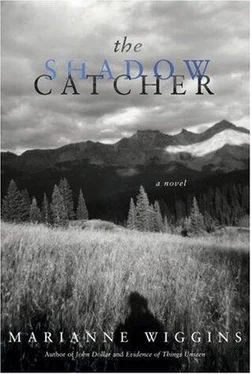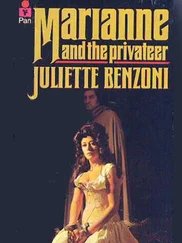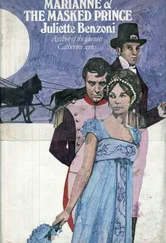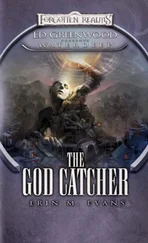The Colonel breaks his revery by reaching behind him to a bookshelf and bringing forth a twelve-inch plastic model of a dark green painted helicopter transport with two rotors, the kind I recognize from the Wagnerian beach scene with Robert Duvall in Apocalypse Now.
“It was my birthday,” the Colonel says. “I was ten years old.” He spins one of the little model’s rotors with a finger. “…and I loved making model airplanes.”
He looks at me.
“Pop had gone to F.A.O. Schwartz — that famous toy store in New York. To buy me this. And he’d been driving all night, straight back from New York City, to bring it home for me, in Virginia, as a surprise. It’s an Apache,” he explains.
“The rotors move.”
He demonstrates.
A long silence passes between us. And then I have to ask, “—what happened ?”
The Colonel, elegant, almost, in his controlled composure, shakes his head, as if to shake the question.
“He was in the house when I got home from school. What a great thing, for a boy. To have his father home, I have to tell you. Pop worked for the railroad on the coast-to-coast service, kept him away from home, on the job, sometimes, two, three, four weeks at a time. But those were great, great days, the ones when he was home. Nothing like it. He didn’t have to do a thing — he could be sleeping in the hammock — the house was lit when he was there. Mother was all lighted up. But that day — something was wrong about it, not the same. He gave me my present and we ate my birthday cake but there was a thing unspoken, some thing I couldn’t understand. I remember I stayed up late, working on this model. And I knew he was sitting in the kitchen, all alone. That night, and then the next. I could hear him. Two days later he was gone.”
We stare at each other.
“I was a kid,” he says, “I thought he had gone back to work. On the rails.” He makes a pyramid with his hands and leans back in his chair. “When I figured out he wasn’t coming back I gave my mother a hard time, went on for years. God bless her.”
“I did the same. These dads who disappear get away with—”
“She died in 1982.”
“I’m sorry.”
“—saw me graduate. I brought her out to the Academy. That’s when we finally had the Talk .”
He looks at me again with something urgent in his eyes that makes me hold my breath.
“Do you know — can you imagine —what it must have been like for a black man of my father’s generation to be driving home one morning on a lonely road down South and find somebody hanging from a tree?”
I feel the room grow small around me.
“That is a black man’s nightmare. Lynching ,” he enunciates.
I hold his gaze.
“She told me Pop came home that day and told her what he’d seen. How he’d seen a car parked on the road and stopped to see if someone needed help. Got out of his car. And saw…”
Please don’t say this , I am thinking.
“…a man. Hanging there. And…”
Shut up. Stop speaking now.
“…his legs were kicking.”
I close my eyes.
“…his legs were kicking and my father told my mother that he only stood there. He couldn’t move. He stood there. Couldn’t save him…and he didn’t know how he could live with that.”
We sit together for a while in silence.
“Our fathers…” I begin to say, but stop. “He left you for thirty years.”
“—and your father didn’t ?”
“How did you…what reason did you give for him?”
“What reason did you give?”
We wait the question out in silence.
“Didn’t you ever ask yourself… why ?” I finally ask. “I mean: he left. Your father left . You and your mother. Weren’t you tempted to wonder if they were ever happy? — your parents?”
“—what does it matter?”
“I think it matters.”
“I think if you think it matters: then, sure. What choice do you have, but to convince yourself that they were happy?”
“Your father still wears his wedding band.”
The Colonel holds his eyes closed a few seconds, then he opens them.
“What was he doing there?”
“—my father?”
“—from Pennsylvania. What was he doing there ? In Virginia. In the Park.”
He liked to drive , I try to explain. It helped him think. “He went there once. With my mother. They went there on their honeymoon.”
When they were happy , I almost add.
He stares at the model helicopter.
“Will you go to see him?”
“Pop—?”
Imperceptibly, he nods.
“I drew a map, in case.”
I hand it to him.
“—you drew me a map.”
“To the hospital. To show which entrance you should take.”
“—but you drew me a map,” he repeats and, for whatever reason, my drawing makes him smile, and that smile, I see, is dazzling.
I get there before him to find that Lester isn’t waiting in the hall, so I slip inside the room where Curtis Edwards lies, not so much to see him or to commune with him in any way, but to see if Lester’s with him.
But once inside the room I’m captured by the silent reverence, a sanctity around his body. How small he is. I hadn’t noticed his frailty when I first looked at him a day ago — perhaps because I hadn’t seen the pictures of his former self, robust and smiling for the camera, the shadow of his son’s smile, I recollect. But now the man who made his son light up seems but a shadow, too, a frost of white beard, dusting of fresh snow, across his chin, his blood blue beneath his skin, his lips and fingers fringed in indigo. He is barely breathing and it takes a conscious effort on my part to convince myself that beneath his eyelids there is life. I stand and gaze at him awhile before I realize someone’s watching me from across the room and turn to see Lester in a chair beside the windows on the far side of the second, vacant, bed, so still he’s almost invisible. I go to stand beside him.
“Have you been here all night?”
He nods.
I touch his shoulder.
“You’ve done a good thing.”
“So have you,” he says and inclines his head to point in the direction of the door.
The Colonel has come in.
I had not intended to be present at the moment when the Colonel sees his father but now Lester and I are trapped by the choreography of circumstance and we both freeze, stop breathing, as the Colonel’s gaze barely acknowledges us before focusing on the body of his father.
The Colonel has put on a jacket since our meeting in his office, he’s in full dress uniform, and I can’t help noticing his shoes, those military-issue shoes that always look too shiny for normal use. At over six feet tall he seems to take up all the space beside the bed and he stands at what I have to call ATTENTION for what seems like several minutes until, slowly, I see his edges blur, his sharpness soften like an image in a camera lens deliquescing out of focus.
“Pop—?” he carefully whispers.
Leaning in to look at him, he places both his hands on his father’s legs beneath the blanket.
“Pop, what did you do?”
He waits, as if for an answer.
“What did you do with your life?”
He drops his head as if in search of something in himself and then he goes and gently takes his father’s hand in his and I have to close my eyes. Because this is the moment, in the nation where I live, where we’ve become conditioned to expect the unrealistic ending, the Happy one, where, if this were a movie that my nation routinely makes, the father would return to life, respond, squeeze his son’s hand in his, wake up and reconcile their shattered past, but when I open my eyes again the Colonel is still there, his hand around his father’s unresponsive one, his act of touch a one-way communication, like a prayer, or like looking at a photograph, as empty or as full as visiting a grave. There is only ever one answer to the question what did you do with your life, and it’s the same — fleeting and unknowable — for every one of us.
Читать дальше











